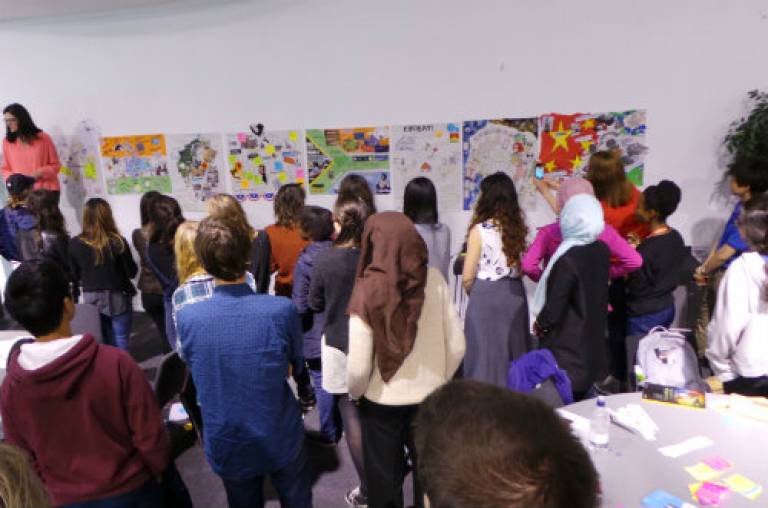5 things students produced on this year’s Global Citizenship Programme
29 June 2016
Many of the students produced videos and content for global and local organisations and their work is now being showcased on the web.

This year’s Global Citizenship Programme saw around 900 students from different disciplines, and a variety of departments, take part in UCL’s flagship non-credit bearing course aimed at exploring and tackling some of the world’s most pressing challenges including climate change, global health and migration. Read more about the two-week programme.
Students chose from ten strands, four of which were new this year.
1 - Active Citizenship
Five students took part in a placement with the charity ‘War on Want’ through the ‘Active Citizenship’ strand. The focus was on campaigning and developed skills in strategic thinking, communication and networking, as well as increasing students’ understanding of ways in which citizen power produces social justice and environmental sustainability.
View the video, featuring ‘Solidaricat’, and hear about their experience.
2 – Global Environmental Justice
Students taking part in this new strand heard from speakers, lecturers and teachers from a wide range of professional backgrounds and disciplines on the impact of climate change on justice, fairness, and equality issues.
A key part of the course was a simulated UN-style conference and involved students making opening statements on behalf of nation states and then participating in a negotiating exercise. The proceedings were filmed by a ‘media group’ of students with the help of UCL documentary film maker Dieter Deswarte.
View the ‘news report-style’ video produced.
3 – (Un)Urban and the Olympic Park
In this hands-on strand, 60 students were shown how to use “human-centred design”- a creative approach to problem-solving that ensures a building or product suits local people’s needs. They collaborated in interdisciplinary teams to work with local organisations, in East London and at the Olympic Park, to explore how to solve issues around public access to green spaces.
4 – Voluntary Sector
As part of this strand, students undertook a placement at a London charity. After a two-day crash course by university and voluntary sector leaders about the sector’s main aspects and issues, student volunteer teams then cemented their learning by completing a bespoke project with their placement organisation. They showed how their skills can be applied to tackle real-world problems.
See the work they produced.
5 – Closing ceremony
At the closing ceremony, all students from each strand viewed each other’s work and celebrated their achievements with a reception event in the Quad and a poster exhibition in the Cloisters.
Alice Godmon, a third year Human Sciences student, said: “Before the programme, I wasn’t sure what I wanted to do. I was someone who never had career aspirations or purpose. The programme gave me a goal. For the first time, I felt angry about the problems in the world. It made me want to be involved in positive change and to try to help solve the issues we face. It’s just one of those things you have to try.”
Toby Skailes, who did the programme last year, said it helped him get a place on a graduate scheme. “I can genuinely say my two weeks on the programme last summer were two of the best during my three years at UCL," he says.
View the photos on the GCP Facebook page.
Next year
The programme will run between the 30 May and 9 June with registration opening in mid-February 2017. There are options for undergraduates and postgraduate taught students. Everyone, no matter what they are studying, is eligible.
Find out more by visiting the Global Citizenship Programme website.
 Close
Close

